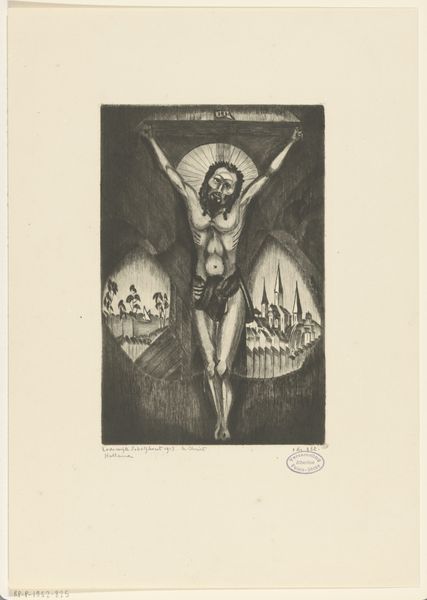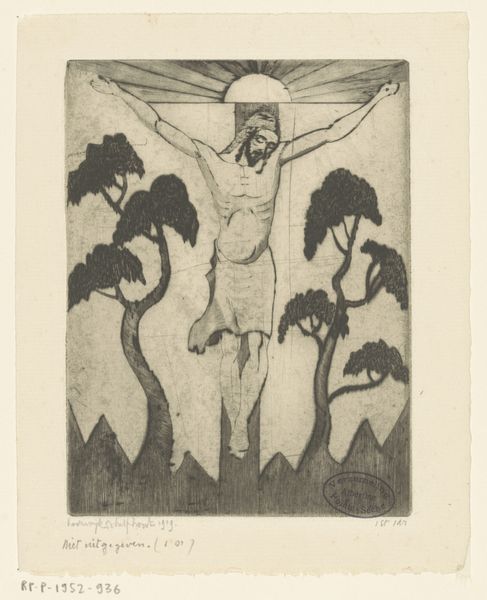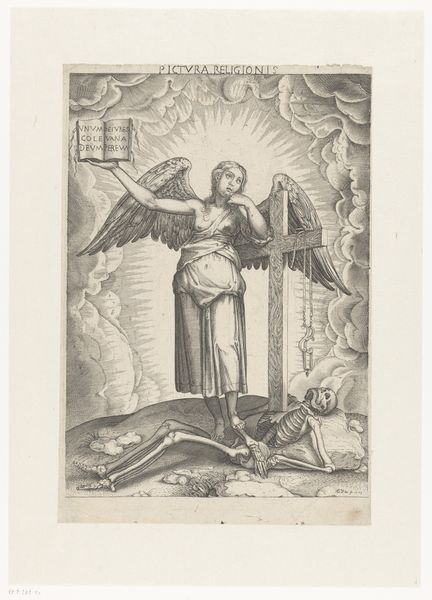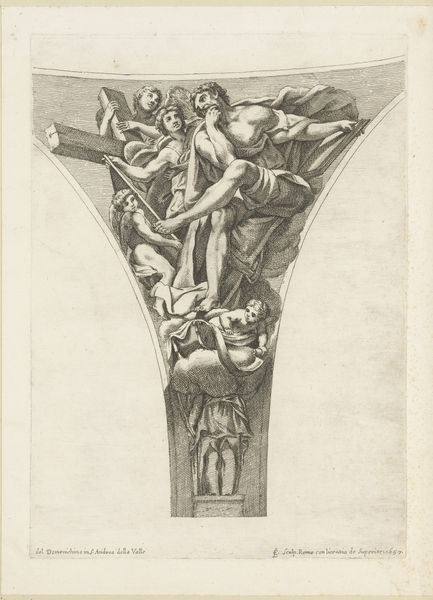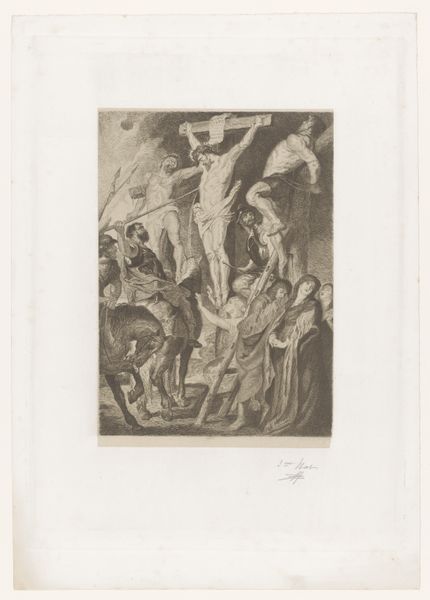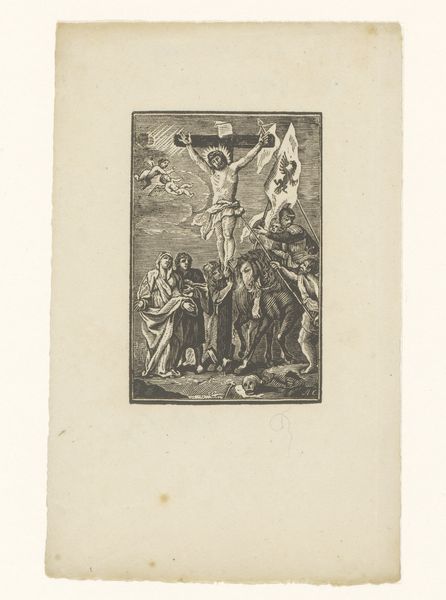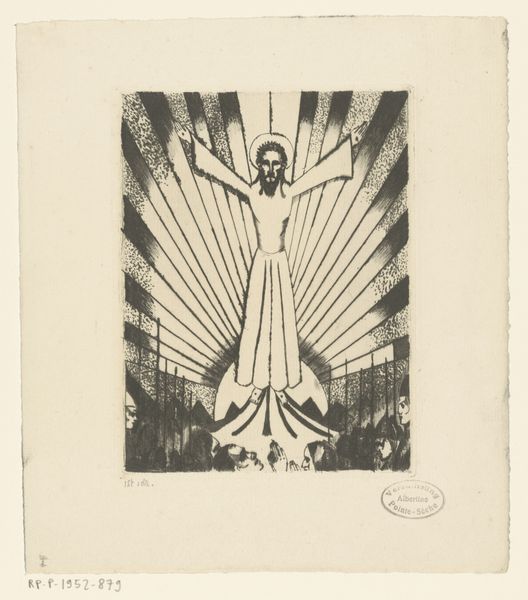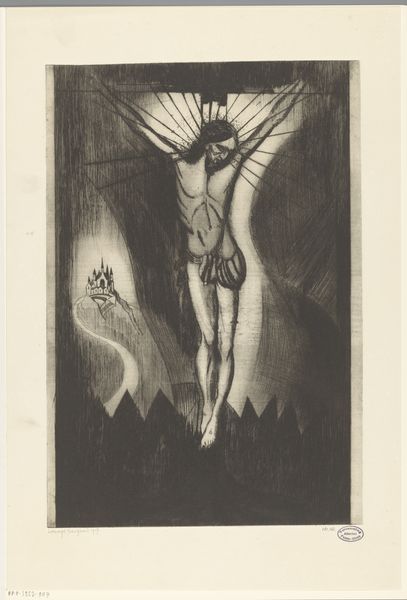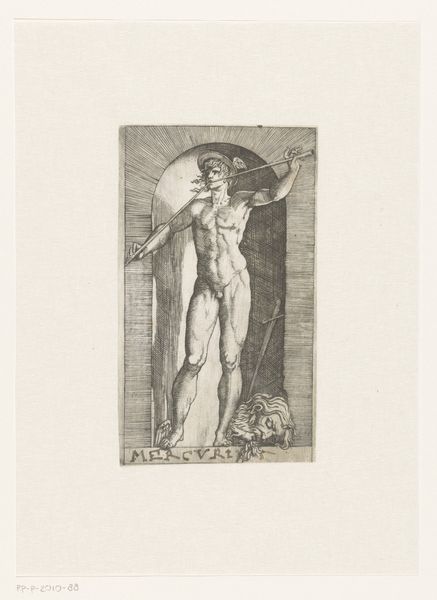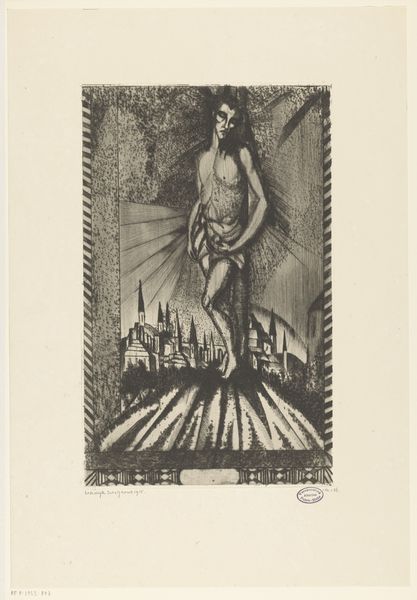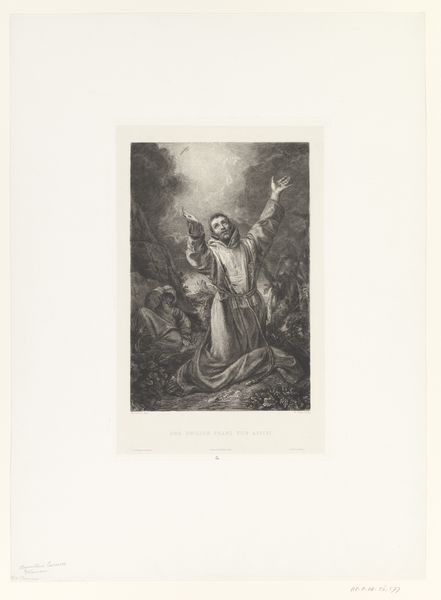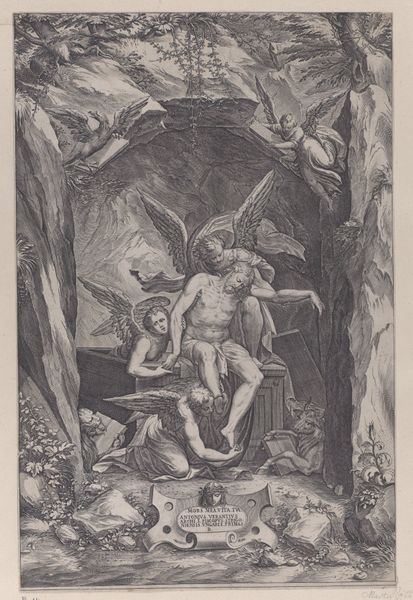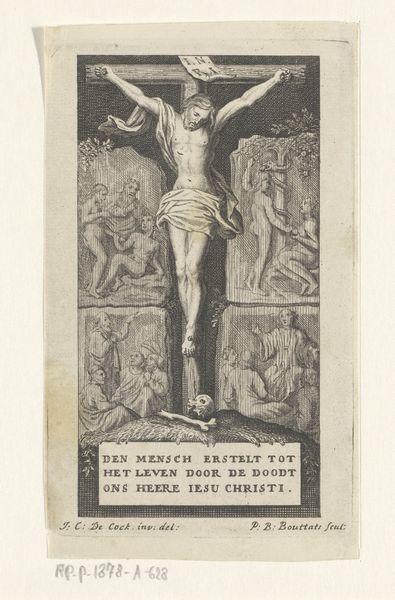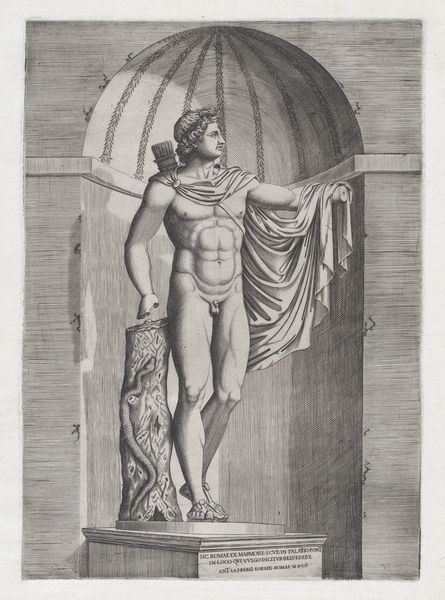
drawing, paper, ink
#
portrait
#
drawing
#
old engraving style
#
figuration
#
paper
#
ink
#
expressionism
#
history-painting
Dimensions: height 235 mm, width 155 mm
Copyright: Rijks Museum: Open Domain
Editor: This is Lodewijk Schelfhout's 1913 ink drawing, "Christus aan het kruis," currently held at the Rijksmuseum. It’s quite striking... the stark contrast and gaunt figure create a really intense atmosphere. How do you interpret this work? Curator: It’s powerful, isn't it? I see the work less as a historical record, and more as an exploration of cultural memory around sacrifice. The distorted anatomy and the contrasting idyllic landscapes within the tondo shapes flanking the figure are crucial. Do you notice how those landscapes—one pastoral, one urban—seem disconnected from Christ’s suffering? Editor: I do see that... almost like two different worlds that his sacrifice is meant to save? Curator: Precisely. The landscapes serve as a stage, a backdrop for this perpetual act. But are they redeemed, or simply witnesses? What is the meaning of these sharp expressive lines, outside of a theological meaning? This reflects the Symbolist interest in archetypes and psychological depth—the cross here not just a symbol of salvation, but a representation of suffering. What are the psychological implications of juxtaposing serenity with intense pain? Editor: So, it's about the enduring relevance of that suffering and its psychological impact, not just the religious aspect? It's heavier than I originally thought. Curator: Indeed. It makes me question the lasting effects of such iconography and whether we internalize a sense of redemption or of continuous suffering when viewing it. Editor: It's fascinating how the symbols have shaped our perception over time. I'll definitely be looking at religious art differently now!
Comments
No comments
Be the first to comment and join the conversation on the ultimate creative platform.
